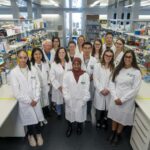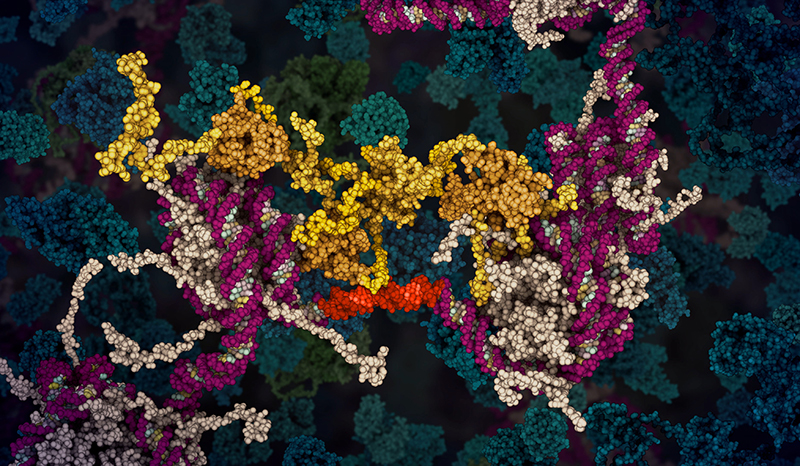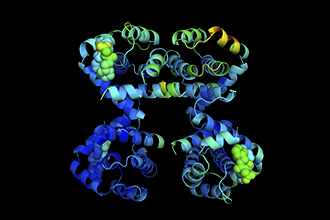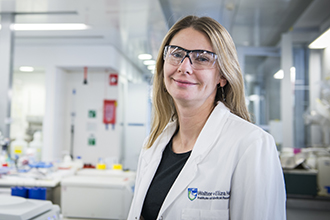2025;
Chin HS, Cheng J, Hsu SH, Lum GG, Zaldivia MT, Nelameham S, Guo F, Mallavarapu K, Jackling FC, Yang J, Tan JSL, Sampath P, Barker N, Smyth GK, Lindeman GJ, Strasser A, Visvader JE, Chen Y, Chen T, Fu NY. MCL‑1 safeguards activated hair follicle stem cells to enable adult hair regeneration. Nature Communications. 2025;16(1):10.1038/s41467-025-58150-5
M. Bader S, Scherer L, Schaefer J, Cooney JP, Mackiewicz L, Dayton M, Georgy SR, Davidson KC, Allison CC, Herold MJ, Strasser A, Pellegrini M, Doerflinger M. IL-1β drives SARS-CoV-2-induced disease independently of the inflammasome and pyroptosis signalling. Cell Death & Differentiation. 2025;:10.1038/s41418-025-01459-x
Chen T, Ashwood LM, Kondrashova O, Strasser A, Kelly G, Sutherland KD. Breathing new insights into the role of mutant p53 in lung cancer. Oncogene. 2025;44(3):10.1038/s41388-024-03219-6
Luo M-X, Tan T, Trussart M, Poch A, Nguyen TMH, Speed TP, Hicks DG, Bandala-Sanchez E, Peng H, Chappaz S, Slade C, Utzschneider DT, Koldej RM, Ritchie D, Strasser A, Thijssen R, Ritchie ME, Tam CS, Lindeman GJ, Huang DCS, Lew TE, Anderson MA, Roberts AW, Teh CE, Gray DHD. Venetoclax dose escalation rapidly activates a BAFF/BCL-2 survival axis in chronic lymphocytic leukemia. Blood. 2024;144(26):10.1182/blood.2024024341
La Marca JE, Kelly GL, Strasser A, Diepstraten ST. Don’t fear the reaper: The role of regulated cell death in tumorigenesis and BH3-mimetics for cancer therapy. Developmental Cell. 2024;59(19):10.1016/j.devcel.2024.06.018
Lieschke E, Thomas AF, Kueh A, Atkin-Smith GK, Baldoni PL, La Marca JE, Young S, Huang AS, Ross AM, Whelan L, Kaloni D, Tai L, Smyth GK, Herold MJ, Hawkins ED, Strasser A, Kelly GL. Mouse models to investigate in situ cell fate decisions induced by p53. The EMBO Journal. 2024;43(19):10.1038/s44318-024-00189-z
Cummings MC, Vaux DL, Strasser A, Kluck R. Correction: John F. R. Kerr (1934–2024). Cell Death & Differentiation. 2024;31(10):10.1038/s41418-024-01373-8
Kelly G, Diepstraten S, Yuan Y, La Marca J, Young S, Chang C, Whelan L, Ross A, Fischer K, Pomilio G, Morris R, Georgiou A, Litalien V, Brown F, Roberts A, Strasser A, Wei A. 2007 – INFORMING THERAPEUTIC APPROACHES FOR P53 DEFECTIVE BLOOD CANCERS. Experimental Hematology. 2024;137:10.1016/j.exphem.2024.104564
Cummings MC, Vaux DL, Strasser A, Kluck R. John F. R. Kerr (1934–2024). Cell Death & Differentiation. 2024;31(8):10.1038/s41418-024-01338-x






